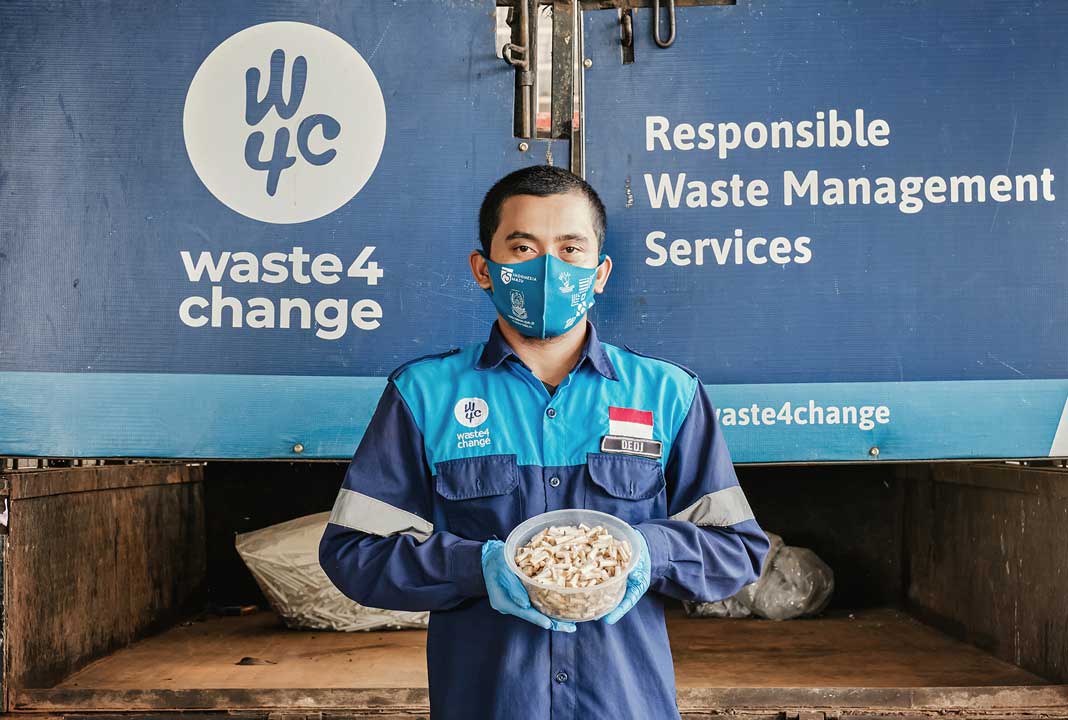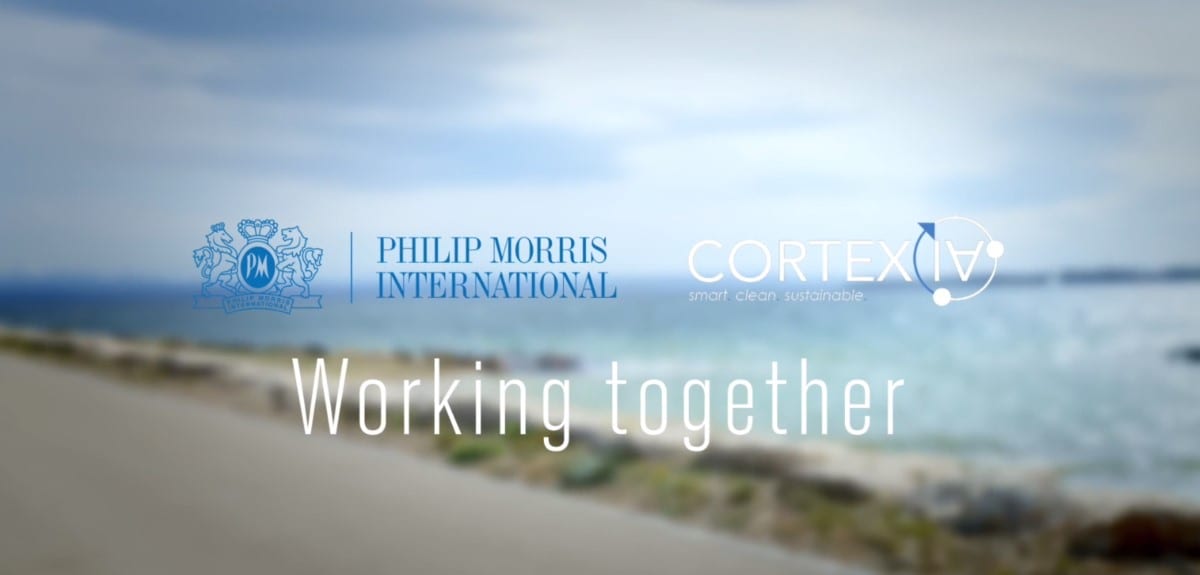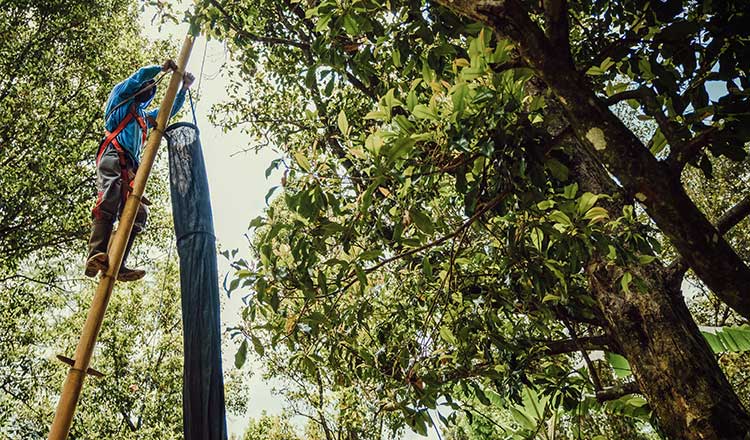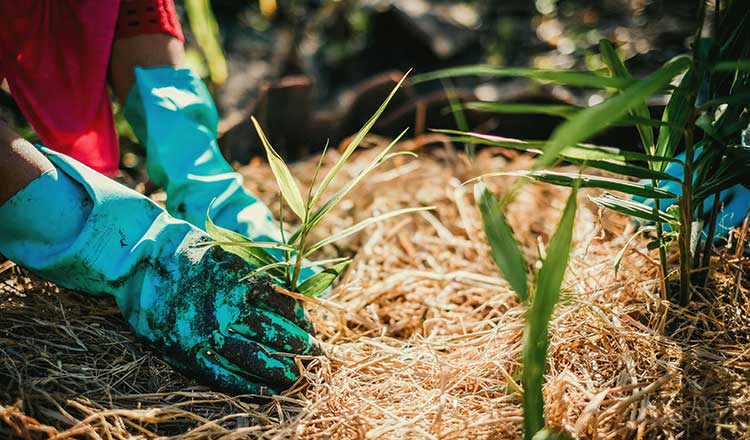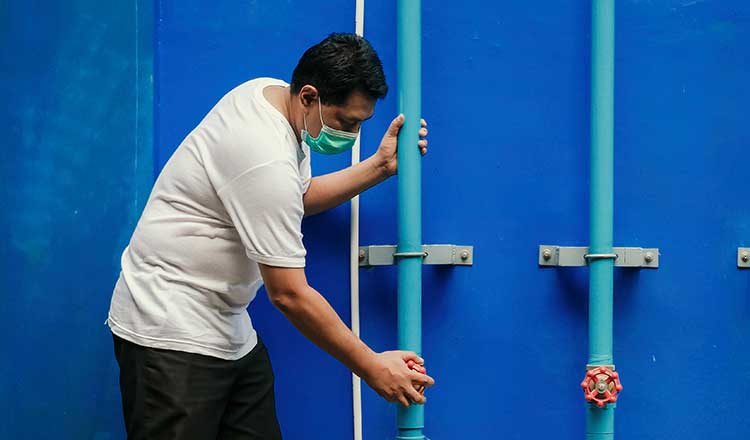| INTEGRATED REPORT 2020 |
Littering is what happens when waste products are discarded incorrectly. It spoils the environment and pollutes the land and the waters, and it has increasingly become a cause for concern in many countries. As individuals are largely responsible for littering, it is important to understand why people litter, as well as how to encourage people not to litter. About one million tons of cigarette filters are produced annually across the tobacco industry. Whereas most cigarette butts are properly disposed of, yet too many are casually littered into the environment and are among the most frequently found litter items.2
Topic description
Littering is what happens when waste products are discarded incorrectly, whether on land or in water. PMI’s littering prevention initiatives—undertaken in partnership with a wide range of stakeholders—focus on consumer awareness and cleanup campaigns of cigarette butts.
Littering prevention is a tier 1 topic within our strategic pillar Protecting the environment.

Our progress in 2020
read more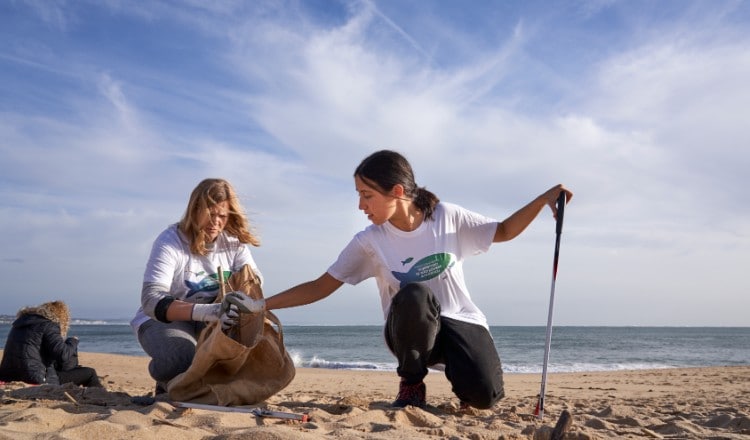
The right thing to do
While most of a cigarette’s tobacco and paper wrapping disintegrate when smoked, some parts remain after consumption. A cigarette butt consists mostly of a filter, fine paper, small amounts of tobacco, and residues of smoke constituents in the filter. Whereas the fine paper and tobacco residues degrade rapidly, the filter material—which is made of cellulose acetate (CA), a wood-sourced bioplastic—biodegrades slowly. Depending on the surrounding biophysical conditions, the biodegradation times for cigarette butts can range from three months to 15 years. This, as well as other kinds of litter, can have serious consequences for the environment, such as pollution, harm to wildlife, and spread of disease. Committing to the safe and responsible disposal of postconsumer waste is the right thing to do, as we share the concerns regarding the effects of litter and recognize our responsibility to work toward an unaffected natural environment. Moreover, there is a proven social impact which we believe we can drive, by engaging with our stakeholders, to take action on matters regarding cleanup initiatives and encouraging behavioral change.
The business case
Beyond environmental considerations, cigarette butt litter and litter in general have a social and financial impact which ranges from cleanup costs to the perception of untidiness and lack of safety in areas of high litter prevalence. Cleaning streets of litter is costly for society, and any reduction of littering at the source, by educating and encouraging consumers to dispose properly, can help reduce these costs. Producers are increasingly asked to participate in these costs. At PMI, we believe we can and should play a role in addressing the issue of littering by helping develop and scale up new emerging and innovative solutions. Appropriately addressing post-consumer waste will help us enhance brand and reputation by directly addressing consumer misperception; it will also allow us to mitigate national and international regulatory risks, which can have financial implications for our bottom line. Finally, it invites us to innovate in a way that can secure our competitive advantage by devising more circular value chains. These are correlated not only with less waste and less litter, but also with less extraction, conversion and manufacture of raw materials, a better use of materials, and higher operational efficiency—all of which are good for the triple bottom line.
Our aim:
50%
reduction of plastic litter from our
products by 2025 (versus 2021)
Achieving our aims
While many consumers dispose of their waste properly, sadly still too much waste ends up in the environment. We seek to help change behavior to prevent cigarette butt littering and to encourage proper waste disposal. To do this, we have an Anti-Littering Policy in place and are acting across PMI to deliver on it; accordingly, we have launched global awareness campaigns and run anti-littering campaigns in several countries across the world.
Our approach to address the issue of littering is three-pronged:
- Reduce litter on the ground through efficient and cost-effective collection schemes and cleanup campaigns.
- Encourage behavioral change: Inspire change in consumer habits through impactful anti-littering awareness campaigns, involving for example the promotion of effective disposal solutions.
- Design for circularity: Replace the plastic in our products with better, more sustainable material alternatives where possible
Through these three simultaneous strategies, we aim to reduce by 50 percent the amount of plastic littered from our products by 2025.
We plan to use three KPIs to track progress:
- Plastic footprint, which indicates the amount of plastic in the products we commercialize in a year
- Plastic litter footprint, which indicates how much of our plastic footprint ends up as litter
- Plastic litter density, which measures the density of plastic litter resulting from our products found on the ground
A model has been developed which will extrapolate data collected locally to provide global figures, based on georeferenced data. The model was calibrated in 2020 in a city pilot (Lisbon, Portugal). We are aware that COVID-19 is still affecting outdoor activities in many countries, which will impact the amount of litter found on the ground. This may result in relatively low litter prevalence still in 2021 and any baseline data points quantifying the litter incidence taken during this period may require controlling for this.
PMI’s 2020 plastic footprint
As a global manufacturer, we source plastic materials and plastic-containing items for products such as our consumables, packaging, and devices. In 2020, the amount of plastic we purchased was around 127,000 tons.
The largest share (79 percent) of that amount came from the bioplastics used in the filters of conventional cigarettes and IQOS heated tobacco units.
Stakeholder engagement
We have partnered with the anti-littering NGO Litterati, data analyst CARTO, and high-tech clean city expert Cortexia to develop a global plastic litter model that will allow us to calculate our annual plastic litter footprint and measure plastic litter prevalence. In 2020, we worked with these organizations to develop a methodology to measure plastic litter prevalence and track progress against our plastic litter target. We plan to establish our baseline in 2021.
Smoking habits, environmental awareness, and disposal practices vary by country, so combating cigarette butt littering requires a customized approach. Accordingly, our affiliates work based on our global methodology to devise impactful, context-based strategies appropriate for their respective market realities. These local anti-littering campaigns are run by our affiliates, with central support and guidance.
We understand that scalable solutions require the right kind of partnership, and in that regard, we also collaborate with industry peers, work with anti-littering organizations, and engage with public authorities.
Moreover, and to ensure activities are
implemented globally and have a tangible impact, we have developed an anti-littering toolkit for use by our affiliates.
Our efforts to raise awareness focus on littering hot spots, such as highly frequented urban areas, squares, and parks identified as priority areas by local authorities. Some of the awareness-raising campaigns are paired with cleanup efforts involving PMI employee participation.
Cleanup campaigns are predominantly designed to raise public awareness on the littering problem in the communities they take place, yet they are not meant to resolve the problem of littering or to replace cost-efficient public cleaning services.
They must be accompanied by convenient cigarette butt disposal solutions. We continuously seek expert input to develop and share innovative approaches to alternative waste receptables, as well as portable solutions for consumers.
2 Mission Megots website (in French), and PMI.com news article: “New PMI survey finds encouraging signs in cigarette butt littering behavior and attitudes—and key areas to address,” July 16, 2020.

Our progress in 2020
read more
Performance metrics
view dataThis online content about our Integrated Report should be read in conjunction with PMI’s 2020 Integrated Report. The information and data presented here cover the 2020 calendar year or reflect status at December 31, 2020, worldwide, unless otherwise indicated. Where not specified, data come from PMI estimates. Please also refer to 'About this report' on page 3 of the 2020 Integrated Report for more information. Aspirational targets and goals do not constitute financial projections, and achievement of future results is subject to risks, uncertainties and inaccurate assumptions, as outlined in our forward-looking and cautionary statements on page 145. In the 2020 Integrated Report and in related communications, the terms “materiality,” “material,” and similar terms, when used in the context of economic, environmental, and social topics, are defined in the referenced sustainability standards and are not meant to correspond to the concept of materiality under the U.S. securities laws and/or disclosures required by the U.S. Securities and Exchange Commission.
